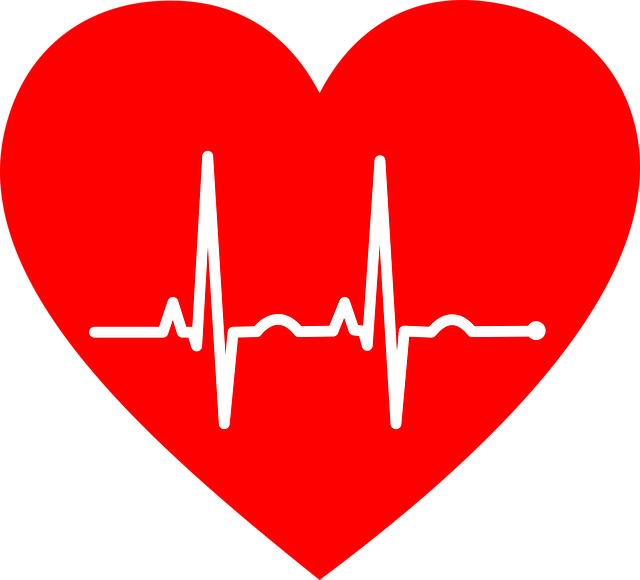Discover effective ways to protect your heart health after 50. Learn essential tips, lifestyle changes, and expert insights to keep your heart in top shape.
Introduction
Entering your 50s is a significant milestone, but it’s also a time when you need to pay extra attention to your heart health. Heart disease becomes more prevalent with age, making it essential to safeguard your cardiovascular well-being. In this comprehensive guide, we’ll explore 25 crucial aspects of heart health after 50. Let’s embark on a journey to maintain a healthy heart and live life to the fullest.
1. Prioritize Regular Check-ups
It all begins with awareness. Schedule regular check-ups with your healthcare provider to monitor your heart health. These visits can help identify risk factors and address any issues early on.
2. How to Safeguard Your Heart Health After 50
Taking charge of your heart health is crucial. Here’s a detailed look at how you can safeguard it effectively:
3. Maintain a Heart-Healthy Diet
A well-balanced diet plays a pivotal role in heart health. Incorporate fruits, vegetables, whole grains, lean proteins, and healthy fats into your meals. Limit your intake of salt, sugar, and processed foods.

4. Stay Physically Active
Regular exercise is essential for cardiovascular health. Aim for at least 150 minutes of moderate-intensity aerobic activity or 75 minutes of vigorous-intensity aerobic activity per week.
5. Control Your Blood Pressure
High blood pressure is a significant risk factor for heart disease. Monitor your blood pressure regularly and follow your doctor’s recommendations to keep it in check.
6. Manage Cholesterol Levels
Keep your cholesterol levels within a healthy range by making dietary adjustments and, if necessary, taking prescribed medications.
7. Quit Smoking
If you smoke, quitting is one of the most impactful steps you can take for your heart health. Seek support and resources to help you quit successfully.
8. Limit Alcohol Consumption
Moderate alcohol consumption can be part of a heart-healthy lifestyle, but excessive drinking can harm your heart. Limit your alcohol intake to one drink per day for women and up to two drinks per day for men.
9. Maintain a Healthy Weight
Being overweight or obese increases your risk of heart disease. Work on achieving and maintaining a healthy weight through diet and exercise.

10. Manage Stress
Chronic stress can take a toll on your heart. Practice relaxation techniques like meditation, yoga, or deep breathing to manage stress effectively.
11. Get Quality Sleep
Aim for 7-9 hours of quality sleep per night. Poor sleep can contribute to heart problems, so prioritize your rest.
12. Stay Hydrated
Proper hydration is essential for overall health, including heart health. Aim to drink enough water throughout the day.
13. Know Your Family History
Your family history can provide valuable insights into your heart disease risk. Share this information with your healthcare provider.
14. Stay Socially Connected
Maintaining strong social connections can reduce stress and promote heart health. Spend time with loved ones and engage in social activities.
15. Monitor Blood Sugar
High blood sugar levels can lead to diabetes, which is a significant risk factor for heart disease. Keep tabs on your blood sugar and follow your doctor’s guidance.
16. Stay Informed About Medications
If you take medication for heart health, understand how it works and follow your prescribed regimen diligently.
17. Keep an Eye on Your BMI
Your Body Mass Index (BMI) is a helpful indicator of your weight’s impact on your health. Consult your healthcare provider for guidance on maintaining a healthy BMI.
18. Incorporate Omega-3 Fatty Acids
Omega-3 fatty acids, found in fish and supplements, can benefit your heart. Discuss the use of supplements with your doctor.

19. Stay Active Mentally
Engage in mentally stimulating activities like puzzles, reading, or learning a new skill to keep your mind sharp and reduce cognitive decline.
20. Regular Dental Check-ups
Believe it or not, oral health and heart health are connected. Maintain regular dental check-ups to lower your risk of heart problems.
21. Avoid Trans Fats
Trans fats can raise bad cholesterol levels. Check food labels and avoid products with trans fats.
22. Get Vaccinated
Infections like the flu can strain your heart. Stay up-to-date with vaccinations to protect your overall health.
23. Consider Aspirin Therapy
Talk to your doctor about whether daily low-dose aspirin therapy is right for you. It can help prevent heart attacks and stroke in some individuals.

24. Plan for Retirement
Plan for a fulfilling retirement that includes physical activity, social engagement, and stress management to support your heart health.
25. Seek Emotional Support
Mental and emotional well-being are closely tied to heart health. Don’t hesitate to seek professional help if you’re experiencing emotional challenges.
Frequently Asked Questions (FAQs)
Q: Is heart disease preventable after 50?
Yes, heart disease is often preventable after 50 through lifestyle changes and regular medical check-ups.
Q: Can I start exercising if I’ve never been active before?
Absolutely! Start slowly and consult your doctor for a safe exercise plan tailored to your fitness level.
Q: Are supplements necessary for heart health?
Supplements can be beneficial, but they should complement a balanced diet, not replace it. Consult your doctor before taking any supplements.
Q: What are the warning signs of a heart attack?
Common warning signs include chest pain or discomfort, shortness of breath, lightheadedness, and pain in the arms, back, neck, jaw, or stomach.
Q: How often should I have my cholesterol checked?
Your doctor will advise you on the frequency of cholesterol checks, but it’s typically recommended every four to six years for adults.
Q: Can I enjoy occasional treats without harming my heart?
Yes, occasional treats are fine in moderation. It’s the overall pattern of your diet that matters most.
Conclusion
Safeguarding your heart health after 50 is a proactive journey that requires commitment and lifestyle adjustments. By following these guidelines, you can reduce your risk of heart disease, stay active, and enjoy a vibrant and fulfilling life well into your golden years.
============================================





